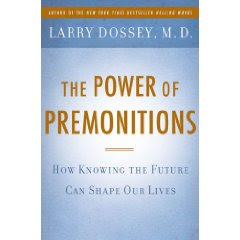Two examples of unquestioned adherence to the 17th century mechanistic assumptions underlying the supposedly modern brain sciences. From Time magazine, " why we're superstitious ," in which superstitions are reduced entirely to quirks of brain functioning. And from Newsweek , more on the same , both referring to a book entitled Supersense. My problem with such efforts is not with the neuroscience, which is undeniably interesting. Rather, I'm worried that the authors of these books, and the journalists who write the articles, haven't bothered to do their homework. For example, the author of Supersense says in response to the question, "What are some examples of things that people believe science will one day explain?" Telepathy, precognition, anything that involves the mind. Typically they will think that humans have this untapped potential for connecting with each other over large distances, which would violate the current laws of physics as we curre

